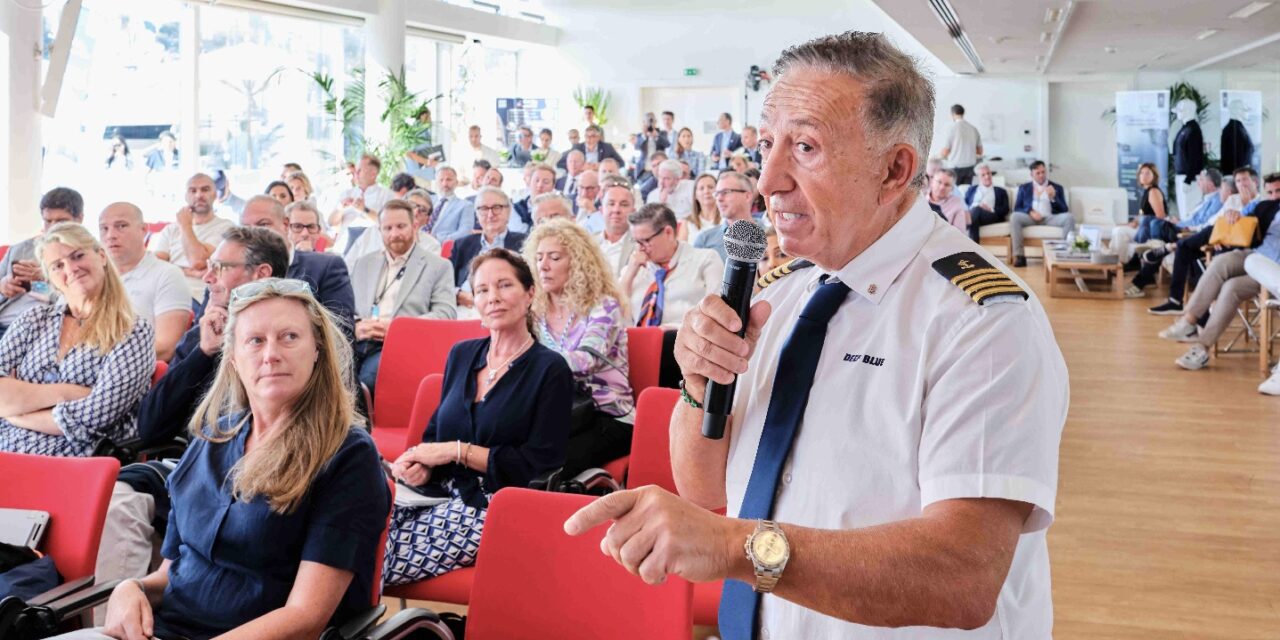On World Maritime Day, the Yacht Club de Monaco (YCM) used the occasion to bring together more than 115 superyacht captains and industry experts for the 29th edition of its Captains’ Forum, themed Leading Today Ahead of Tomorrow. Collectively, the participating captains represent a fleet stretching nearly five kilometres in length — a measure of the industry’s reach and responsibility. Fourteen new members joined the YCM Captains’ Club this year, a sign of its growing influence.
Opening the event, Bernard d’Alessandri, Secretary General of the YCM and President of the “Yachting Monaco” Cluster, stressed the club’s role in anticipating industry challenges. “This is a sector that continues to progress,” he said. “We have relaunched numerous processes in favour of eco-responsibility in yachting, and I am very happy to see how many of us are mobilising.”
The first session, moderated by Steve Monk, a former Royal Navy navigator, focused on continuing professional development. Panelists argued that the minimum international standards for seafarer training are no longer sufficient. Chris Andreason of Edmiston called ongoing training a “strategic investment,” while Tracey Santrian of BZ Maritime Leadership framed it as a matter of professionalism and foresight. Speakers stressed the need for structured career pathways, mentoring, and improved training for crew members outside regulatory frameworks, particularly in hospitality.
The debate sharpened when an experienced captain criticised owner attitudes that block crew training opportunities. His blunt intervention — “You must train the shipowner to accept that the crew can train” — drew applause, underscoring that governance and culture are as vital as technical skills.
The second half of the forum shifted focus to sustainability. Moderated by Neity Maddock, the discussion centred on the SEA Index®, the superyacht carbon benchmarking tool launched by YCM and Credit Suisse. Insurance executive Nicolas Mior noted that insurers are already adjusting premiums based on emissions, while shipowner representatives welcomed the tool’s clarity in guiding sustainable upgrades. Speakers highlighted progress in lighter materials, optimised propulsion, and eco-friendly refits, warning that sustainability must extend beyond engines to encompass design and materials.
“Action must be taken now,” concluded one panelist, capturing a consensus that environmental performance is becoming as central to a yacht’s value as pedigree or size.
The conversation will continue on Tuesday, October 14 at a dedicated SEA Index® workshop, where the push for training, innovation, and sustainability will remain firmly on the agenda.

